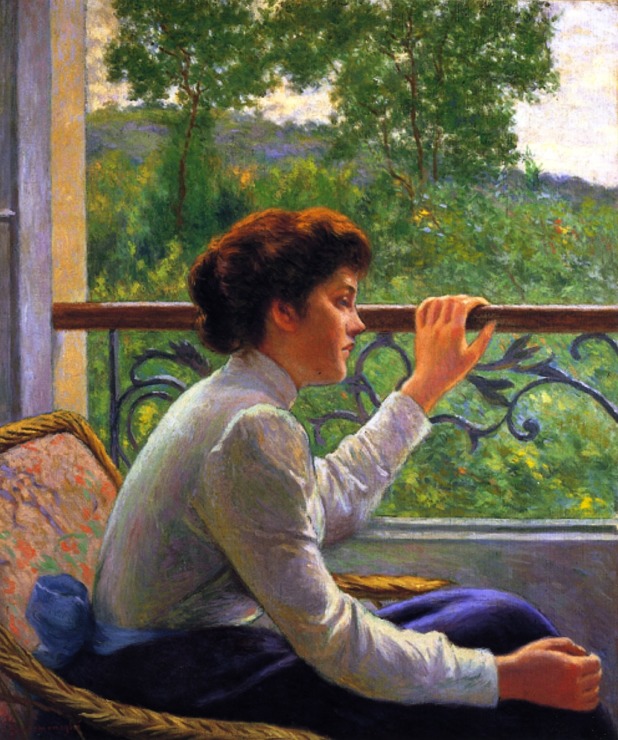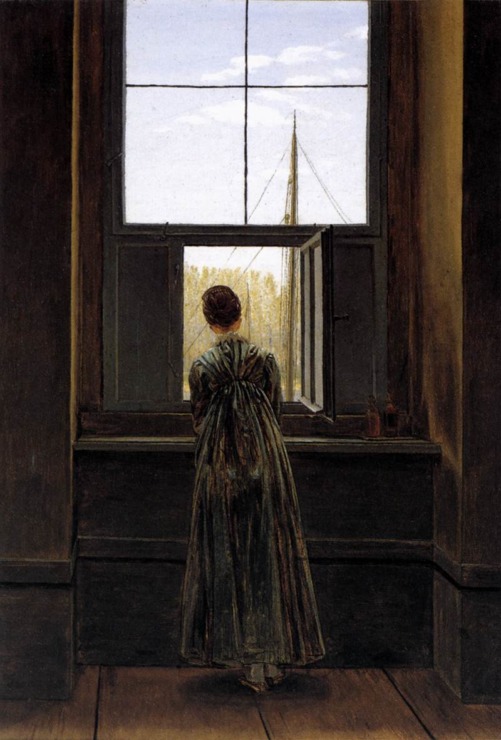The Ballad of Mol Magee
Come round me, little childer;
There, don’t fling stones at me
Because I mutter as I go;
But pity Moll Magee.
My man was a poor fisher
With shore lines in the say;
My work was saltin’ herrings
The whole of the long day.
And sometimes from the saltin’ shed,
I scarce could drag my feet
Under the blessed moonlight,
Along the pebbly street.
I’d always been but weakly,
And my baby was just born;
A neighbor minded her by day
I minded her till morn.
I lay upon my baby;
Ye little childer dear,
I looked on my cold baby
When the morn grew frosty and clear.
A weary woman sleeps so hard!
My man grew red and pale,
And gave me money, and bade me go
To my own place, Kinsale.
He drove me out and shut the door,
And gave his curse to me;
I went away in silence,
No neighbor could I see.
The windows and the doors were shut,
One star shone faint and green
The little straws were turnin’ round
Across the bare boreen.
I went away in silence:
Beyond old Martin’s byre
I saw a kindly neighbor
Blowin’ her mornin’ fire.
She drew from me my story—
My money’s all used up,
And still, with pityin’, scornin’ eye,
She gives me bite and sup.
She says my man will surely come,
And fetch me home agin;
But always, as I’m movin’ round,
Without doors or within,
Pilin’ the wood or pilin’ the turf,
Or goin’ to the well,
I’m thinkin’ of my baby
And keenin’ to mysel’.
And sometimes I am sure she knows
When, openin’ wide His door,
God lights the stars, His candles,
And looks upon the poor.
So now, ye little childer,
Ye won’t fling stones at me;
But gather with your shinin’ looks
And pity Moll Magee.
-WB Yeats
Enjoy Artistic Representations of “The Ballad of Mol Magee” by WB Yeats

Waiting by Federico Zandomeneghi, before 1918.

Woman at a Window by Caspar David Friedrich, 1822.
Listen to these Readings of “The Ballad of Mol Magee”
Listen to these Musical Interpretations of “The Ballad of Mol Magee” by WB Yeats
About W.B. Yeats
William Butler Yeats was born in 1865 in Dublin into a family of the Protestant Anglo-Irish landowning class. He lived in Dublin and London during his growing up years. He was very much affected by the politics of the time, as he was a young adult when the protestant minority in power began to be displaced by the predominantly Catholic nationalist movement.
Yeats studied law for a time but eventually moved to London to study art. He was an accomplished playwright, and a founder of the Irish Theatre which was later to become the Abbey Theatre. While he is better known for his poetry, Yeats was awarded the Nobel Prize for Literature in 1923 more for his theatrical works than his verse. He was the first Irishman to be awarded the prize.
His first collection of poems was published in 1889, and there is strong evidence of the influence of Edmund Spenser and Percy Bysshe Shelley. Later, his poetry became more rooted in realism and the physical, with influence of Ezra Pound and William Blake apparent. Common themes in his poetry include mysticism, spiritualism, the occult and Irish identity and nationalism.
Yeats was appointed to the Irish senate in 1922. He was married, but had an ongoing relationship of sorts with a former love, Irish activist and revolutionary Maud Gonne. Known as one of the greatest poets of the 20th century, Yeats died in 1939.
That’s it for The Ballad of Mol Magee!
BUY ‘HOW TO WRITE A FORM POEM’ NOW!
